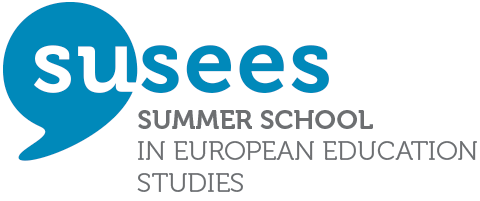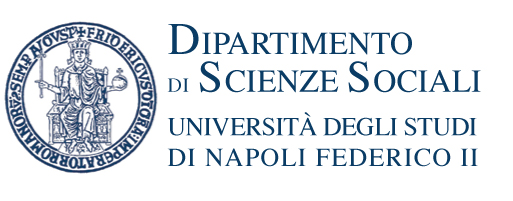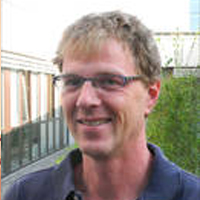 Stephen J Ball is Distinguished Service Professor of Sociology of Education at the University College London, Institute of Education. He was elected Fellow of the British Academy in 2006; and is also Fellow of the Academy of Social Sciences; and Society of Educational Studies, and a Laureate of Kappa Delta Phi; he has honorary doctorates from the Universities of Turku (Finland), and Leicester. He is co-founder and Managing Editor of the Journal of Education Policy.His main areas of interest are in sociologically informed education policy analysis and the relationships between education, education policy and social class. He has written 20 books and had published over 140 journal articles. Recent books: How Schools do Policy (2012), Global Education Inc. (2012), Networks, New Governance and Education (with Carolina Junemann)(2012), Foucault, Power and Education (2013), Edu.Net (2017) and Foucault as Educator (2017).
Stephen J Ball is Distinguished Service Professor of Sociology of Education at the University College London, Institute of Education. He was elected Fellow of the British Academy in 2006; and is also Fellow of the Academy of Social Sciences; and Society of Educational Studies, and a Laureate of Kappa Delta Phi; he has honorary doctorates from the Universities of Turku (Finland), and Leicester. He is co-founder and Managing Editor of the Journal of Education Policy.His main areas of interest are in sociologically informed education policy analysis and the relationships between education, education policy and social class. He has written 20 books and had published over 140 journal articles. Recent books: How Schools do Policy (2012), Global Education Inc. (2012), Networks, New Governance and Education (with Carolina Junemann)(2012), Foucault, Power and Education (2013), Edu.Net (2017) and Foucault as Educator (2017).
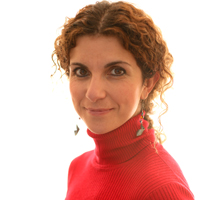 Sotiria Grek is Senior Lecturer in Social Policy and Co-director of the Centre for Science, Knowledge and Policy (SKAPE) at the School of Social and Political Science, University of Edinburgh, UK. She is an Executive Editor of the European Educational Research Journal (EERJ). Sotiria researches the role of metrics as a policy tool that actively contributes to the making of transnational governance. She is interested in performance monitoring and comparison as forms of education governance, through which the project of Europeanization is pursued. Her research places numbers and comparison in the foreground of enquiry into policy, rather than examine them as merely offering ‘evidence’ to policy making. She focuses on an analysis of global education policy convergence through an examination of the mediating effects of national/local policies and practices. Further, she researches policy learning in transnational education governance, and especially the relationship between the European Commission and the OECD in the governing of education in Europe. She is currently leading (Principal investigator) a major European Research Council Starting Grant 2017-2021, ‘International Organisations and the Rise of a Global Metrological Field’ (ERC-StG-2016). Among her recent publications, Educating Europe: EU government, knowledge and legitimation, (2017, Routledge).
Sotiria Grek is Senior Lecturer in Social Policy and Co-director of the Centre for Science, Knowledge and Policy (SKAPE) at the School of Social and Political Science, University of Edinburgh, UK. She is an Executive Editor of the European Educational Research Journal (EERJ). Sotiria researches the role of metrics as a policy tool that actively contributes to the making of transnational governance. She is interested in performance monitoring and comparison as forms of education governance, through which the project of Europeanization is pursued. Her research places numbers and comparison in the foreground of enquiry into policy, rather than examine them as merely offering ‘evidence’ to policy making. She focuses on an analysis of global education policy convergence through an examination of the mediating effects of national/local policies and practices. Further, she researches policy learning in transnational education governance, and especially the relationship between the European Commission and the OECD in the governing of education in Europe. She is currently leading (Principal investigator) a major European Research Council Starting Grant 2017-2021, ‘International Organisations and the Rise of a Global Metrological Field’ (ERC-StG-2016). Among her recent publications, Educating Europe: EU government, knowledge and legitimation, (2017, Routledge).
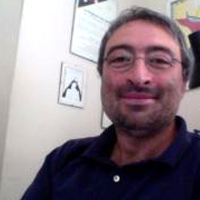 Emiliano Grimaldi is Lecturer in Sociology at the Department of Social Sciences, University Federico II, Naples, Italy. He teaches Research Methods for Educational Research. His expertise concerns primarily education policy analysis, also in a comparative perspective, educational governance and qualitative educational research. He is currently working on diverse macro and micro topics such the reforming and modernisation of Education Systems across Europe, early school leaving contrast and prevention, education policy and practice in multicultural societies. The European dimension of education policy and practice his a recurrent topic in his works. He is author of several books, journal articles and essays (All publications can be found at https://www.docenti.unina.it/emiliano.grimaldi).
Emiliano Grimaldi is Lecturer in Sociology at the Department of Social Sciences, University Federico II, Naples, Italy. He teaches Research Methods for Educational Research. His expertise concerns primarily education policy analysis, also in a comparative perspective, educational governance and qualitative educational research. He is currently working on diverse macro and micro topics such the reforming and modernisation of Education Systems across Europe, early school leaving contrast and prevention, education policy and practice in multicultural societies. The European dimension of education policy and practice his a recurrent topic in his works. He is author of several books, journal articles and essays (All publications can be found at https://www.docenti.unina.it/emiliano.grimaldi).
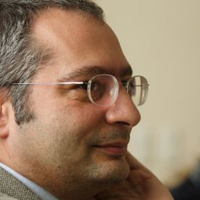 Paolo Landri is a Senior Researcher of the CNR-IRPPS – Institute of Research on Population and Social Policies of National Research Council. His expertise is in sociology of education, research methodologies, and organizational studies, having participated to many research projects at national and international level. Recently, his main research interests concern educational organizations and policies. He is now involved in national and international research projects on the transformations of educational setting by the widespread diffusion of web-learning in school, work, and youth communities. Internationally, he is the link convenor of the EERA Network 28 ‘Sociologies of Education’, he is an Associate Member of ProPEL (Professional Practice Education and Learning) of the University of Stirling, and is a board member of several international journals.
Paolo Landri is a Senior Researcher of the CNR-IRPPS – Institute of Research on Population and Social Policies of National Research Council. His expertise is in sociology of education, research methodologies, and organizational studies, having participated to many research projects at national and international level. Recently, his main research interests concern educational organizations and policies. He is now involved in national and international research projects on the transformations of educational setting by the widespread diffusion of web-learning in school, work, and youth communities. Internationally, he is the link convenor of the EERA Network 28 ‘Sociologies of Education’, he is an Associate Member of ProPEL (Professional Practice Education and Learning) of the University of Stirling, and is a board member of several international journals.
 Emeritus Professor of Education in the School of Education, University of Edinburgh (UK) and Honorary Senior Research Fellow of the Department of Education, University of Oxford (UK). He is a Past Secretary General of the European Educational Research Association (EERA) and the founding Editor of the European Educational Research Journal (EERJ). He is a Fellow of the Academy of Social Sciences in the UK and a Visiting Professor, CELE, University of Turku, Finland.
Emeritus Professor of Education in the School of Education, University of Edinburgh (UK) and Honorary Senior Research Fellow of the Department of Education, University of Oxford (UK). He is a Past Secretary General of the European Educational Research Association (EERA) and the founding Editor of the European Educational Research Journal (EERJ). He is a Fellow of the Academy of Social Sciences in the UK and a Visiting Professor, CELE, University of Turku, Finland.
His expertise concerns education policy in the European Union; governing education systems; the rise of comparison and research in European education; and materialities in education. He participated in several EU funded project (eg: KNOWPOL, 2006-2011, and EUROCORES, 2006-2009).
 Professor in Sociology, University of Louvain, Belgium. He is specifically interested in the sociology of knowledge and the knowledge – policy relationship. His current work area deals with the role of knowledge in governing/governance. He has been the co-director of a large FP6 Integrated project funded by the European Commission and dealing with “the role of knowledge in the construction and regulation of education and health policy across Europe” (KNOWPOL). He have published several papers, chapters in books and monographs. All publications can be found at http://www.uclouvain.be/eric.mangez. He teaches general sociology, method and political sociology at the University of Louvain. Specialties: His theoretical and empirical research expertise is in education(al) policy.
Professor in Sociology, University of Louvain, Belgium. He is specifically interested in the sociology of knowledge and the knowledge – policy relationship. His current work area deals with the role of knowledge in governing/governance. He has been the co-director of a large FP6 Integrated project funded by the European Commission and dealing with “the role of knowledge in the construction and regulation of education and health policy across Europe” (KNOWPOL). He have published several papers, chapters in books and monographs. All publications can be found at http://www.uclouvain.be/eric.mangez. He teaches general sociology, method and political sociology at the University of Louvain. Specialties: His theoretical and empirical research expertise is in education(al) policy.
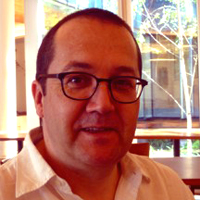 Romuald Normand is Fulbright fellow and full-time professor of sociology at the University of Strasbourg (Faculty of Social Sciences, Research Unit SAGE: Societies, Actors and Government of Europe) and convenor of the network “Sociologies of European Education” (European Association of Educational Research). He is member of the editorial board of the British Journal of Sociology of Education. His research interests are on European education and Higher Education policies. He is currently involved in a Marie-Curie project UNIKE (Universities in Knowledge Economies) and an ERASMUS project (Governance and adaptation to innovative modes of higher education provision).
Romuald Normand is Fulbright fellow and full-time professor of sociology at the University of Strasbourg (Faculty of Social Sciences, Research Unit SAGE: Societies, Actors and Government of Europe) and convenor of the network “Sociologies of European Education” (European Association of Educational Research). He is member of the editorial board of the British Journal of Sociology of Education. His research interests are on European education and Higher Education policies. He is currently involved in a Marie-Curie project UNIKE (Universities in Knowledge Economies) and an ERASMUS project (Governance and adaptation to innovative modes of higher education provision).
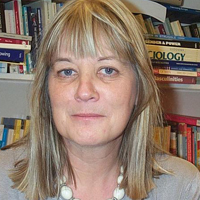 Jennifer Ozga is Professor Emeritus of the Sociology of Education in the Department of Education of the University of Oxford. Her main research areas are education policy in international comparative contexts, with a focus on governance. Research topics include education and social policy; policy elites and policy communities, policy networks and policy for the teaching profession, within and across the UK and increasingly in the context of Europeanisation of education. Research also includes work on teachers’ work as labour process, and in schooling and social capital and gender and educational management. She is currently working on a Leverhulme funded project on the changing governance of education from 1988-2010. She is a Fellow of the British Academy and a member of the Academy of Social Sciences, she has been a visiting Professor at the University of Umea, Sweden, and Helsinki University, Finland.
Jennifer Ozga is Professor Emeritus of the Sociology of Education in the Department of Education of the University of Oxford. Her main research areas are education policy in international comparative contexts, with a focus on governance. Research topics include education and social policy; policy elites and policy communities, policy networks and policy for the teaching profession, within and across the UK and increasingly in the context of Europeanisation of education. Research also includes work on teachers’ work as labour process, and in schooling and social capital and gender and educational management. She is currently working on a Leverhulme funded project on the changing governance of education from 1988-2010. She is a Fellow of the British Academy and a member of the Academy of Social Sciences, she has been a visiting Professor at the University of Umea, Sweden, and Helsinki University, Finland.
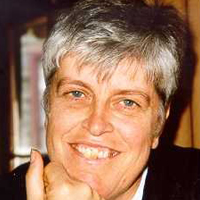
Professor Terri Seddon, sociologist and passionate adult educator, believes in education as a fundamental human right and enabler of change in everyday life. She touches people in workplaces and communities as well as educational institutions through her teaching and research at Monash University, (now) Australian Catholic University, and collaborative projects with colleagues in Europe and the Asia Pacific. Terri’s commitments to education and educational research are distinguished by a global frame of reference that she refined through teaching the intercontinental Masters in Adult Learning and Global Change, with colleagues from Canada, Sweden and South Africa. Rigorous and enquiring, Terri’s way of working and learning across borders means stepping into what is not known. Her premise is possibility: despite growing privatisation across all levels of schooling and education, Terri looks to collaborate with great educators around the globe who seek a “game changer” to inequality and gender justice in the education space. But not only as an explorer of ideas; Terri has walked the Larapinta Track, west of Alice Springs, trekked Nepal and sings with a women’s choir to engage with cultures that broaden her horizons and extend her experience.
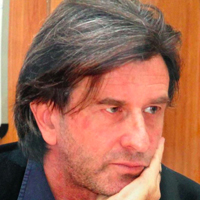 Roberto Serpieri is Professor of Sociology of Education at the Department of Social Sciences, University Federico II, Naples, Italy. His expertise concerns primarily education policy analysis, also in a comparative perspective, educational leadership and the studies on the transformations of the education state and professions. He is currently working on diverse topics such the reforming and modernisation of Education Systems across Europe, evaluation and accountability in the field of education and the reshaping of educational professions. The European dimension of education policy and practice his a recurrent topic in his works. He is author of several books, journal articles and essays (All publications can be found at https://www.docenti.unina.it/roberto.serpieri).
Roberto Serpieri is Professor of Sociology of Education at the Department of Social Sciences, University Federico II, Naples, Italy. His expertise concerns primarily education policy analysis, also in a comparative perspective, educational leadership and the studies on the transformations of the education state and professions. He is currently working on diverse topics such the reforming and modernisation of Education Systems across Europe, evaluation and accountability in the field of education and the reshaping of educational professions. The European dimension of education policy and practice his a recurrent topic in his works. He is author of several books, journal articles and essays (All publications can be found at https://www.docenti.unina.it/roberto.serpieri).
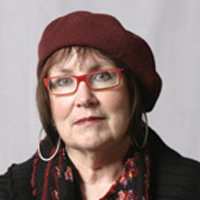 Professor Pat Thomson PSM PhD FAcSS FRSA is Convenor of the Centre for Research in Arts, Creativity and Literacy (CRACL). Pat is known for her interdisciplinary engagement with questions of creative and socially just learning and change. Much of this work has been in collaboration with Professor Christine Hall. Pat has had a long term research partnership with Professor Barbara Kamler with whom she writes about academic writing (see publications). Her academic writing and research education blog ‘patter’ is archived by the British Library and posts are frequently republished elsewhere. She tweets as @ThomsonPat and has an academic writing ‘patter’ facebook page. Her research activities can be seen on a range of websites – the TALE project, the Signature Pedagogies project, I worked at Raleigh, the Get Wet project, Performing Impact, Cultural Value and Live Art, and Quality in Alternative Education. She is an Editor of the international peer refereed journal, Educational Action Research (Taylor and Francis). Her current research focuses on creativity, the arts and change in schools and communities, and postgraduate writing pedagogies. She is currently devoting more time to exploring, reading and thinking about imaginative and inclusive pedagogies which sit at the heart of change. She is also looking at the ways in which innovative approaches to schooling are spread with /against policy agendas – and within and between countries. She maintains an interest in the changing work of school administrators and in children and young people who do not get the full benefits of education. All of her research is underpinned by a commitment to social justice and an interest in questions of power, identity, place and agency.She has had extensive involvement in school, family and community programmes and works closely with practitioners and pupils as co-researchers. She has expertise in policy, sociology and cultural geography and has a particular interest in text-based and arts informed research methods. She frequently uses visual research methods in her work.
Professor Pat Thomson PSM PhD FAcSS FRSA is Convenor of the Centre for Research in Arts, Creativity and Literacy (CRACL). Pat is known for her interdisciplinary engagement with questions of creative and socially just learning and change. Much of this work has been in collaboration with Professor Christine Hall. Pat has had a long term research partnership with Professor Barbara Kamler with whom she writes about academic writing (see publications). Her academic writing and research education blog ‘patter’ is archived by the British Library and posts are frequently republished elsewhere. She tweets as @ThomsonPat and has an academic writing ‘patter’ facebook page. Her research activities can be seen on a range of websites – the TALE project, the Signature Pedagogies project, I worked at Raleigh, the Get Wet project, Performing Impact, Cultural Value and Live Art, and Quality in Alternative Education. She is an Editor of the international peer refereed journal, Educational Action Research (Taylor and Francis). Her current research focuses on creativity, the arts and change in schools and communities, and postgraduate writing pedagogies. She is currently devoting more time to exploring, reading and thinking about imaginative and inclusive pedagogies which sit at the heart of change. She is also looking at the ways in which innovative approaches to schooling are spread with /against policy agendas – and within and between countries. She maintains an interest in the changing work of school administrators and in children and young people who do not get the full benefits of education. All of her research is underpinned by a commitment to social justice and an interest in questions of power, identity, place and agency.She has had extensive involvement in school, family and community programmes and works closely with practitioners and pupils as co-researchers. She has expertise in policy, sociology and cultural geography and has a particular interest in text-based and arts informed research methods. She frequently uses visual research methods in her work.
